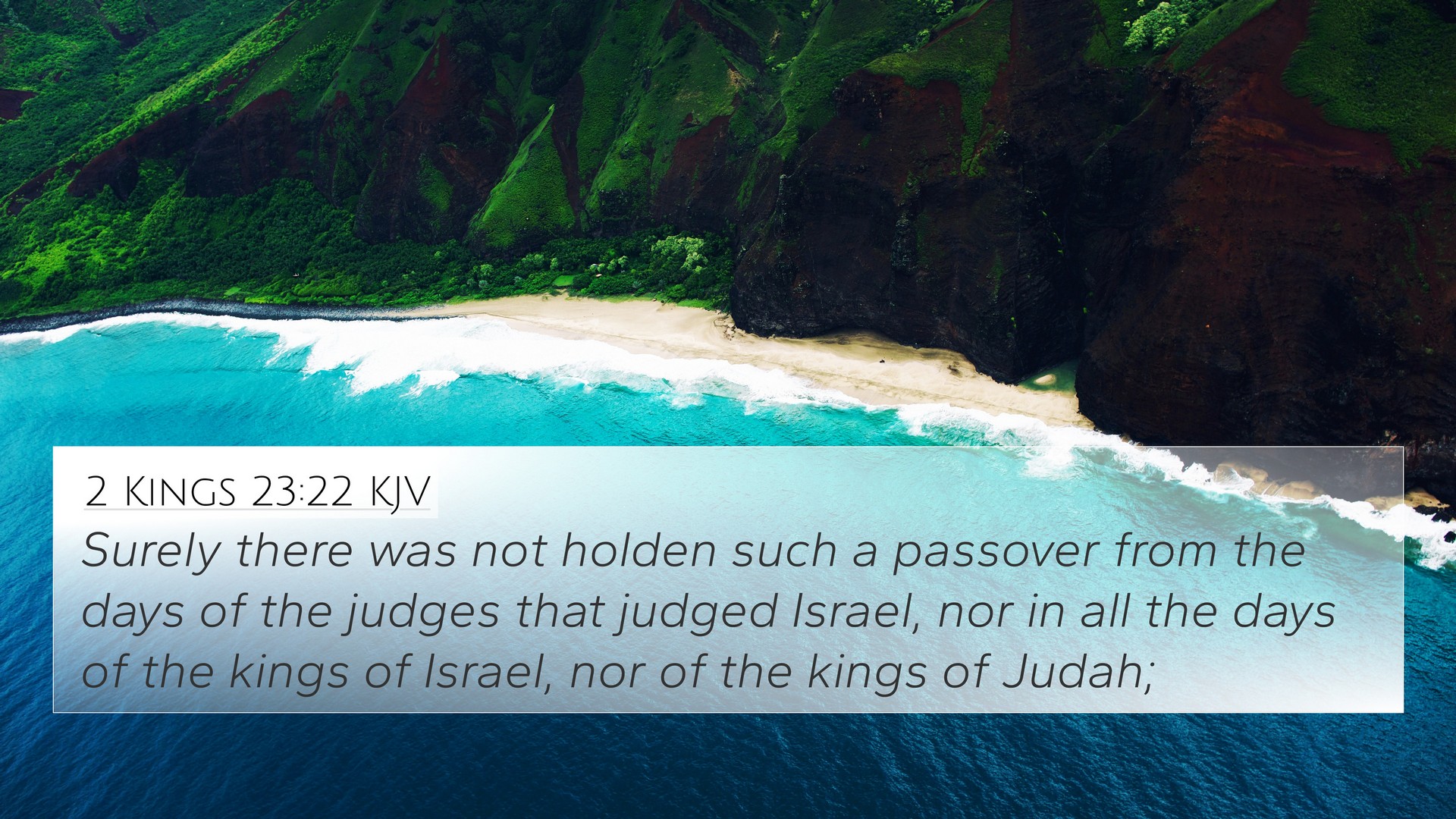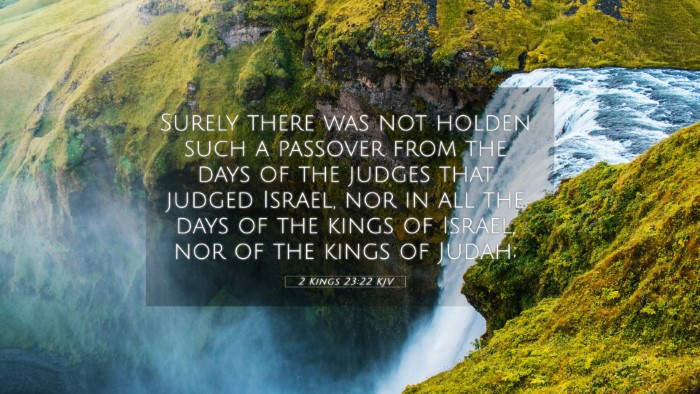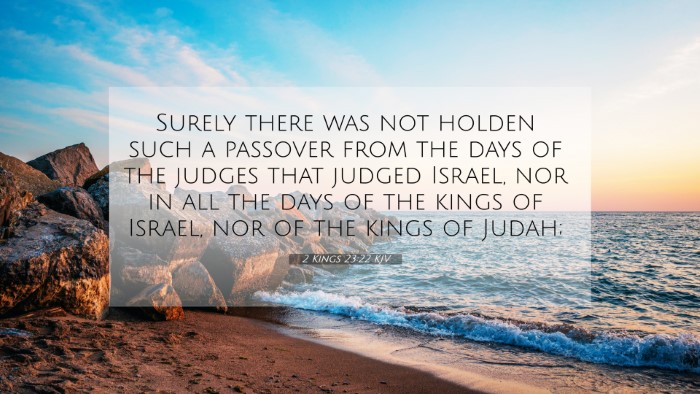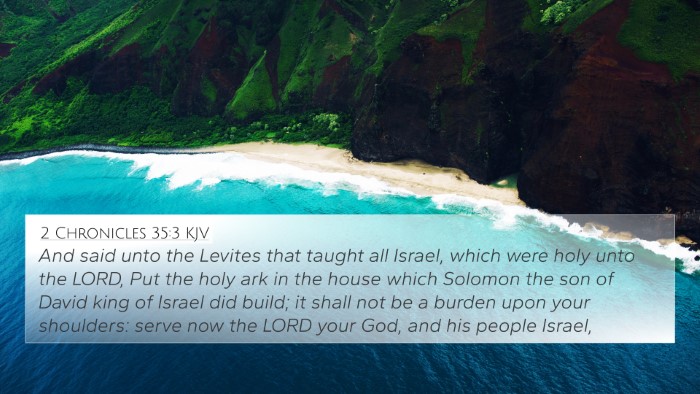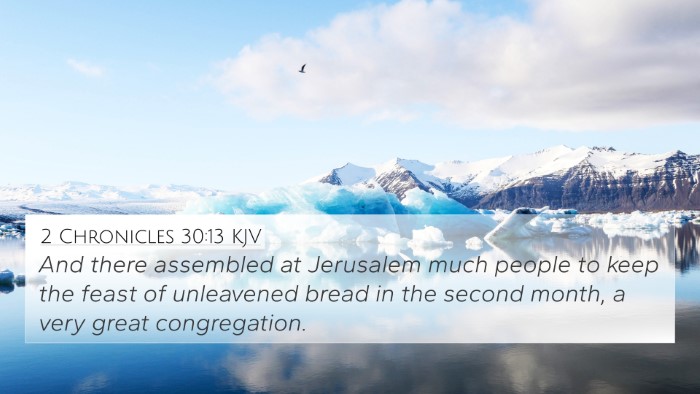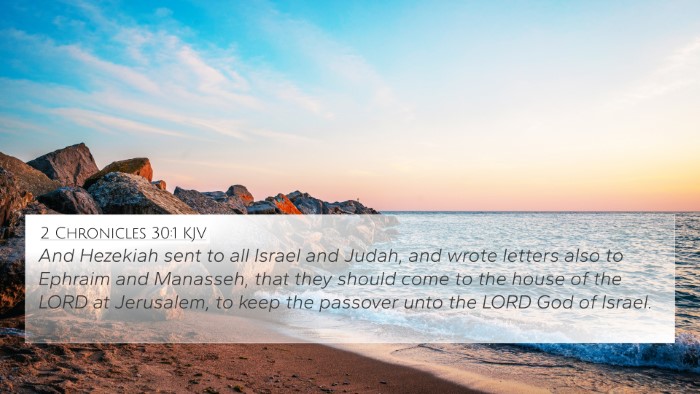Understanding 2 Kings 23:22
2 Kings 23:22 states, "Surely there was not held such a passover from the days of the judges that judged Israel, nor in all the days of the kings of Israel, nor of the kings of Judah." This verse highlights a significant revival of the Passover celebration, marking it as a monumental event in the history of Israel.
Background and Context
This passage occurs during the reign of King Josiah, who aimed to restore true worship in Judah. After discovering the Book of the Law, Josiah initiated extensive reforms to eliminate idolatry and reinstate the practices ordained by God. This context enriches our understanding of the importance of the Passover celebration at this time.
Commentary Insights
-
Matthew Henry's Commentary:
Henry notes that this Passover celebrated under Josiah was unique in its adherence to the commands outlined in the Law. He emphasizes that such purity in worship had not been seen since the days of the judges, indicating a profound turn back to covenant faithfulness.
-
Albert Barnes' Notes on the Bible:
Barnes elaborates on the historical significance of this event, suggesting that the revival of such a central festival underscores the desperation of Israel's spiritual state prior to Josiah's reforms. The fact that no similar celebration had occurred in the past illustrates the depth of the people's return to God.
-
Adam Clarke's Commentary:
Clarke provides a detailed examination of the Passover rituals and how they were observed during this time. He posits that Josiah’s commitment to reinstituting the Passover served as a powerful symbol of national repentance and unity among the tribes of Israel.
Thematic Connections
This verse is rich in thematic connections related to worship, repentance, and divine covenant. The Passover itself represents deliverance and God's faithfulness to His people. Here are some key themes to explore:
- Worship as a Community: The communal aspect of the Passover signifies unity in worship and remembrance of God’s deliverance.
- Restoration of Covenant Practice: Josiah’s reforms represented a return to the covenant relationship initiated by God with Israel.
- Repentance and Renewal: The Passover signifies a renewed commitment to following God sincerely and wholeheartedly.
Related Bible Cross-References
To gain a comprehensive understanding of 2 Kings 23:22, we can look at several cross-references that illuminate the themes and significance of this passage:
- Exodus 12:1-28: The foundation of the Passover observance, detailing the original institution given by God.
- Deuteronomy 16:1-8: The Law’s instructions concerning the Passover sacrifice and celebration.
- 2 Chronicles 35:1-19: A parallel account of Josiah’s Passover observance, underscoring its importance.
- Joshua 5:10-12: The first Passover observed in the Promised Land, emphasizing its long-standing significance.
- 1 Corinthians 5:7-8: New Testament reference that typologically connects Christ as our Passover Lamb.
- Luke 22:14-20: Jesus’ Last Supper as a Passover meal, drawing connections to the new covenant.
- Romans 8:1-2: The concept of being freed from condemnation, paralleling the deliverance theme of the Passover.
- Hebrews 11:28: The faith of Moses in keeping the Passover points back to its significance in God’s deliverance.
- Matthew 26:17-30: Jesus’ preparation for the Passover, highlighting its ongoing importance for believers.
- John 1:29: John the Baptist acknowledges Jesus as the Lamb of God, alluding to the sacrificial nature of Passover.
Prayerful Reflection
As we meditate on 2 Kings 23:22, let us reflect on the significance of worship in our own lives. Just as Josiah led his nation back to God through the observance of Passover, we too are called to remember our deliverance through Christ and to celebrate His presence in our lives today.
Conclusion
2 Kings 23:22 serves as a powerful reminder of the importance of adhering to God’s commands and reviving authentic worship. Through this verse, we see not only a moment in Israel’s history but also the timeless call to return to God with a sincere heart. The connections between various Bible verses enrich our understanding and appreciation of this pivotal historical moment.
